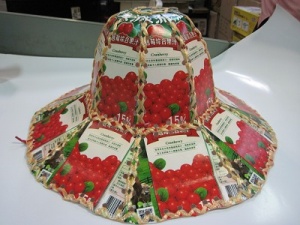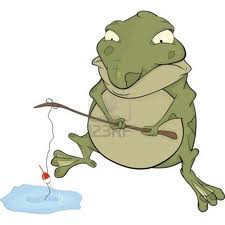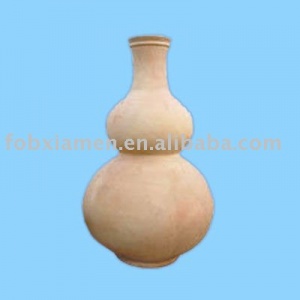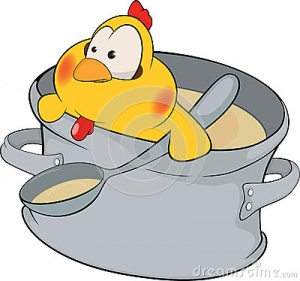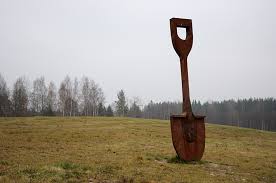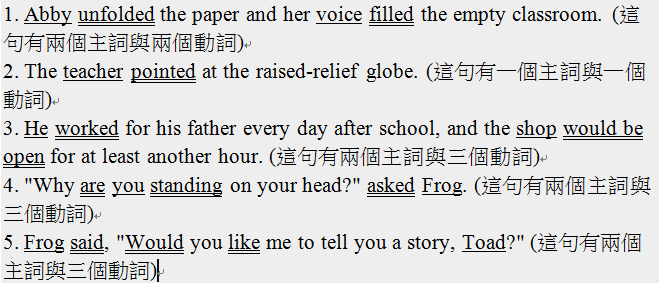「英文/謝酲洊」修訂間的差異
跳至導覽
跳至搜尋
| (未顯示同一使用者於中間所作的 37 次修訂) | |||
| 第36行: | 第36行: | ||
*calabash | *calabash | ||
[[檔案:Tall clay calabash pot.jpg|300px]] | [[檔案:Tall clay calabash pot.jpg|300px]] | ||
| − | *#The calabash | + | *#The color of the calabash is very white. |
*#這葫蘆的顏色很白 | *#這葫蘆的顏色很白 | ||
*carried | *carried | ||
| − | *#Tomorrow should carried rain boots to school. | + | *#Tomorrow you should carry carried rain boots to school. |
*#明天必須攜帶雨鞋到學校 | *#明天必須攜帶雨鞋到學校 | ||
*delicious | *delicious | ||
| 第45行: | 第45行: | ||
*#炸薯條是最美味的食物 | *#炸薯條是最美味的食物 | ||
*dug | *dug | ||
| − | *# | + | *#Children love drgging dut and playing in the dirt. |
*#孩子最愛挖泥土,玩泥巴 | *#孩子最愛挖泥土,玩泥巴 | ||
*found | *found | ||
| 第51行: | 第51行: | ||
*#我終於找到了多年失散的圖畫 | *#我終於找到了多年失散的圖畫 | ||
*gobble | *gobble | ||
| − | *#Large waves gobble a boat. | + | *#Large waves gobble up a boat. |
*#大海浪吞沒了一艘船 | *#大海浪吞沒了一艘船 | ||
*peeled | *peeled | ||
| − | *#Mom is | + | *#Mom is peeling the apple. |
*#媽媽正在把蘋果去皮 | *#媽媽正在把蘋果去皮 | ||
*piece | *piece | ||
| − | *#I have a huge piece pizza. | + | *#I have a huge a huge piece of pizza. |
*#我有一片巨大的披薩 | *#我有一片巨大的披薩 | ||
*sailing | *sailing | ||
| 第70行: | 第70行: | ||
*#There was a spade inserted in the grass. | *#There was a spade inserted in the grass. | ||
*#有一隻鏟子插在草地上 | *#有一隻鏟子插在草地上 | ||
| + | *thought | ||
| + | *#Everything must be done to thought. | ||
| + | *#做每件事情都要思考 | ||
| + | *tree root | ||
| + | [[檔案:下載 (1).jpg|300px]] | ||
| + | *#These tree root is very scary | ||
| + | *#這些樹根是很可怕 | ||
| + | |||
| + | ===作業=== | ||
| + | ==2014/3/25== | ||
| + | [[檔案:2014-03-30 2024.png|800px]] | ||
| + | |||
| + | ===作業=== | ||
| + | ==2014/4/1== | ||
| + | *shout | ||
| + | *#單字詞性:動詞= v. =verb | ||
| + | *#中文翻譯:喊 | ||
| + | *#出現在文章哪裡:在第4頁的第三行"“Toad, Toad,” shouted Frog, “wake up. It is spring!”" 在第35頁的第四行"“That is not my button!” shouted Toad." | ||
| + | *thin | ||
| + | *#單字詞性:形容詞= adj. =adjective | ||
| + | *#中文翻譯:薄 | ||
| + | *#出現在文章哪裡:在第35頁倒數第二行"That button is thin." 在第36頁的第一行"Toad put the thin button in his pocket." | ||
| + | *thick | ||
| + | *#單字詞性:形容詞= adj. =adjective | ||
| + | *#中文翻譯:厚 | ||
| + | *#出現在文章哪裡:在第35頁最後一行"My button was thick." 在第37頁的第一段"Toad ran home and slammed the door. There, on the floor, he saw his white, four-holed, big, round, thick button." | ||
| + | *angry | ||
| + | *#單字詞性:形容詞= adj. =adjective | ||
| + | *#中文翻譯:憤怒 | ||
| + | *#出現在文章哪裡:在第36頁的第二行"He was very angry." | ||
| + | |||
| + | ===作業=== | ||
| + | ==2014/4/5== | ||
| + | #behind | ||
| + | #*Where is the dog? The dog is behind the door. | ||
| + | #between | ||
| + | #*Where is the pig? The pig is between cows. | ||
| + | #beside | ||
| + | #*Where is the hamster? The hamster is beside the Computer. | ||
| + | #in | ||
| + | #*Where is the fish? The fish is in the Aquarium. | ||
| + | #in front of | ||
| + | #*Where is the man? The man is in front of the TV set(television). | ||
| + | #inside | ||
| + | #*Where is the lion? The lion is inside the cage. | ||
| + | #on | ||
| + | #*Where is the frog? The frog is on the stone. | ||
| + | #outside | ||
| + | #*Where is the bicycle? The bicycle is outside the house. | ||
| + | #under | ||
| + | #*Where is the bird? The bird is under the tree. | ||
| + | |||
| + | ===作業=== | ||
| + | ==2014/4/23== | ||
| + | *想想看一 | ||
| + | #這件洋裝和那件一樣好。 | ||
| + | #*This dress as well as that. | ||
| + | #你的房間和她的一樣乾淨。 | ||
| + | #*Your bedroom as clean as hers. | ||
| + | *想想看二 | ||
| + | #我們今天和爸爸一樣早起。 | ||
| + | #*We got up as early as Father today. | ||
| + | #這個班上的男孩和女孩,都一樣小心翼翼地正寫著他們的習作。 | ||
| + | #*The boys of the class are writing their workbooks as carefully as the girls. | ||
| + | *想想看三 | ||
| + | #hotter. | ||
| + | #thinner. | ||
| + | #more important. | ||
| + | #longer. | ||
| + | #older. | ||
| + | #heavier. | ||
| + | #more delicious. | ||
| + | #smaller. | ||
| + | #busier. | ||
| + | #easier. | ||
| + | #cheaper. | ||
| + | #more serious. | ||
| + | #colder. | ||
| + | #more difficult. | ||
| + | #earlier. | ||
| + | #younger. | ||
| + | #bigger. | ||
| + | #more careful. | ||
| + | #faster. | ||
| + | #cooler. | ||
| + | #warmer. | ||
| + | #harder. | ||
| + | #more interesting. | ||
| + | #sadder. | ||
| + | *想想看四 | ||
| + | #台北比台中溫暖。 | ||
| + | #*Taipei is warmer than Taichung. | ||
| + | #林先生比王先生瘦。 | ||
| + | #*Mr. Lin is thinner than Mr. Wang. | ||
| + | #看籃球賽比聽音樂要來得刺激。 | ||
| + | #*Watching basketball games is more exciting than listening to music. | ||
| + | *想想看五 | ||
| + | #天氣變得愈來愈熱。 | ||
| + | #*The weather is getting hotter and hotter. | ||
| + | #她變得愈來愈美麗了。 | ||
| + | #*She is becomes more beautiful. | ||
| + | *想想看六 | ||
| + | #我們今天比爸爸還要早起。 | ||
| + | #*We got up earlier than Father today. | ||
| + | #這個班上的男孩比女孩更小心翼翼地寫著他們的習作。 | ||
| + | #*The boys of the class are writing their workbooks more carefully than the girls. | ||
| + | |||
| + | ===作業=== | ||
| + | ==2014/5/19== | ||
| + | *想想看一 | ||
| + | *#改變句子後有多加了逗點。 | ||
| + | *想想看二 | ||
| + | *#多加了 but。 | ||
| + | *想想看三 | ||
| + | *#因為 though 和 but 都是連接詞,但只有兩個子句連在一起,所以一次只能用一個連接詞。 | ||
| + | *想想看四 | ||
| + | *#He is old and weak, but he still has to work.(中間的逗號可以去掉。) | ||
| + | *#The old woman doesn't have much money, but she is happy.(中間的逗號可以去掉。) | ||
| + | *想想看五 | ||
| + | *# D | ||
| + | *# A | ||
| + | *# A | ||
| + | *# D | ||
| + | *# B | ||
| + | *# B | ||
| + | *# C | ||
| + | *# C | ||
| + | *# C | ||
| + | *# A | ||
| + | *想想看六 | ||
| + | *# C | ||
| + | *# D | ||
| + | *# D | ||
| + | *# C | ||
| + | *# A | ||
| + | *# B | ||
| + | *# B | ||
| + | *# C | ||
| + | *# A | ||
| + | *# C | ||
| + | *想想看七 | ||
| + | #雖然他已打了很久的籃球,但他還是不會覺得累。 | ||
| + | #*Though he has played basketball for a long time, he still doesn't feel tired. | ||
| + | #假如 Peggy 下個月贏得了首獎的話,她的父母親將會給她獎金5,000元。 | ||
| + | #*If Peggy wins the first prize next month, her parents will give her $5,000. | ||
| + | #因為那間教室太髒了,所以我的學生們正在那兒打掃。 | ||
| + | #*Because the classroom is too dirty, my students are cleaning it there. | ||
| + | #雖然她把鑰匙藏在抽屜裡,但是我們最後還是找到了它。 | ||
| + | #*Though she hid the key in the drawer, we still found it finally. | ||
| + | #假如我是你的話,我就搭飛機去台中。 | ||
| + | #*If I were you, I would take an airplane/a plane to Taichung. | ||
| + | #因為我對數學不感興趣,所以我每天努力讀英語。 | ||
| + | #*Because I'm not interested in math, I study English hard every day. | ||
| + | |||
| + | ===作業=== | ||
| + | |||
| + | ==2014/5/19== | ||
| + | *想想看一 | ||
| + | *#have, has, gone。 | ||
| + | *想想看二 | ||
| + | *#have/has | ||
| + | *#過去分詞 (p.p.) | ||
| + | *想想看三 | ||
| + | *#Sue has not paid the bill. | ||
| + | *#We have not drunk the tea. | ||
| + | *#The students have not reviewed the lesson. | ||
| + | *想想看四 | ||
| + | *#Has Sue paid the bill? | ||
| + | *#Have you drunk the tea? | ||
| + | *#Have the students reviewed the lesson? | ||
| + | *想想看五 | ||
| + | *#Yes, she has. No, she has not. 或 No, she hasn't. | ||
| + | *#Yes, we have. No, we have not. 或 No, we haven't. | ||
| + | *#Yes, they have. No, they have not. 或 No, they haven't. | ||
| + | *想想看六 | ||
| + | *#都有「have.../has...」兩個字。 都有「已經」兩個字。 | ||
| + | *想想看七 | ||
| + | *#Your son has eaten two hamburgers. | ||
| + | *#He has read three comic books. | ||
| + | *#Tina and her brother have walked for five hours. | ||
| + | *#The/These workers have built five houses. | ||
| + | *#They have taught English in junior high school for more than twenty years. | ||
| + | *#Have you ever heard the news? | ||
| + | *#Your daughter hasn't taken the medicine (yet). | ||
| + | *#How many classmates have they invited? | ||
| + | *#How many years have the/those students learned/studied English? | ||
| + | *#We have collected a lot of stamps. | ||
| + | *想想看八 | ||
| + | *#因「我」既然「已去台北了」,怎麼還會在你面前向你說這句話呢? | ||
| + | *想想看九 | ||
| + | *#B | ||
| + | *#D | ||
| + | *#C | ||
| + | *#D | ||
| + | *#A | ||
| + | *#D | ||
| + | *#A | ||
| + | *#A | ||
| + | *#C | ||
| + | *#B | ||
| + | *#C | ||
| + | *#B | ||
| + | *#D | ||
| + | *#A | ||
| + | *#B | ||
於 2014年5月27日 (二) 23:30 的最新修訂
作業
2014/2/20
- frog(s)
- Frog singing in the pond.
- 青蛙在池塘邊唱歌
- toad(s)
- Toad in the river fishing.
- 蟾蜍在河邊釣魚
- porch(es)
- A man sitting on the porch where.
- 有個人坐在門廊那裡
- river(s)
- There is a very long and wide river
- 有一條很長又寬的河流
- star(s)
- Particularly bright stars in the sky darker
- 天空越黑星星特別亮
- cup(s)
- Boss made a cup with biscuit
- 老闆用餅乾做成了一個杯子
作業
2014/3/5
- behind
- A man and a woman behind me.
- 我背後有個男人和女人
- both
- Both SpongeBob and Patrick are eating hamburger.
- 海綿寶寶和派大星兩者正在吃漢堡
- calabash
- The color of the calabash is very white.
- 這葫蘆的顏色很白
- carried
- Tomorrow you should carry carried rain boots to school.
- 明天必須攜帶雨鞋到學校
- delicious
- French fries are the most delicious food.
- 炸薯條是最美味的食物
- dug
- Children love drgging dut and playing in the dirt.
- 孩子最愛挖泥土,玩泥巴
- found
- I finally found a long-lost painting.
- 我終於找到了多年失散的圖畫
- gobble
- Large waves gobble up a boat.
- 大海浪吞沒了一艘船
- peeled
- Mom is peeling the apple.
- 媽媽正在把蘋果去皮
- piece
- I have a huge a huge piece of pizza.
- 我有一片巨大的披薩
- sailing
- I want to have a beautiful sailing.
- 我想要有一艘漂亮的帆船
- stewed chicken
- Cute chicks into a stewed chicken.
- 可愛的小雞變成了紅燒燉雞
- spade
- There was a spade inserted in the grass.
- 有一隻鏟子插在草地上
- thought
- Everything must be done to thought.
- 做每件事情都要思考
- tree root
- These tree root is very scary
- 這些樹根是很可怕
作業
2014/3/25
作業
2014/4/1
- shout
- 單字詞性:動詞= v. =verb
- 中文翻譯:喊
- 出現在文章哪裡:在第4頁的第三行"“Toad, Toad,” shouted Frog, “wake up. It is spring!”" 在第35頁的第四行"“That is not my button!” shouted Toad."
- thin
- 單字詞性:形容詞= adj. =adjective
- 中文翻譯:薄
- 出現在文章哪裡:在第35頁倒數第二行"That button is thin." 在第36頁的第一行"Toad put the thin button in his pocket."
- thick
- 單字詞性:形容詞= adj. =adjective
- 中文翻譯:厚
- 出現在文章哪裡:在第35頁最後一行"My button was thick." 在第37頁的第一段"Toad ran home and slammed the door. There, on the floor, he saw his white, four-holed, big, round, thick button."
- angry
- 單字詞性:形容詞= adj. =adjective
- 中文翻譯:憤怒
- 出現在文章哪裡:在第36頁的第二行"He was very angry."
作業
2014/4/5
- behind
- Where is the dog? The dog is behind the door.
- between
- Where is the pig? The pig is between cows.
- beside
- Where is the hamster? The hamster is beside the Computer.
- in
- Where is the fish? The fish is in the Aquarium.
- in front of
- Where is the man? The man is in front of the TV set(television).
- inside
- Where is the lion? The lion is inside the cage.
- on
- Where is the frog? The frog is on the stone.
- outside
- Where is the bicycle? The bicycle is outside the house.
- under
- Where is the bird? The bird is under the tree.
作業
2014/4/23
- 想想看一
- 這件洋裝和那件一樣好。
- This dress as well as that.
- 你的房間和她的一樣乾淨。
- Your bedroom as clean as hers.
- 想想看二
- 我們今天和爸爸一樣早起。
- We got up as early as Father today.
- 這個班上的男孩和女孩,都一樣小心翼翼地正寫著他們的習作。
- The boys of the class are writing their workbooks as carefully as the girls.
- 想想看三
- hotter.
- thinner.
- more important.
- longer.
- older.
- heavier.
- more delicious.
- smaller.
- busier.
- easier.
- cheaper.
- more serious.
- colder.
- more difficult.
- earlier.
- younger.
- bigger.
- more careful.
- faster.
- cooler.
- warmer.
- harder.
- more interesting.
- sadder.
- 想想看四
- 台北比台中溫暖。
- Taipei is warmer than Taichung.
- 林先生比王先生瘦。
- Mr. Lin is thinner than Mr. Wang.
- 看籃球賽比聽音樂要來得刺激。
- Watching basketball games is more exciting than listening to music.
- 想想看五
- 天氣變得愈來愈熱。
- The weather is getting hotter and hotter.
- 她變得愈來愈美麗了。
- She is becomes more beautiful.
- 想想看六
- 我們今天比爸爸還要早起。
- We got up earlier than Father today.
- 這個班上的男孩比女孩更小心翼翼地寫著他們的習作。
- The boys of the class are writing their workbooks more carefully than the girls.
作業
2014/5/19
- 想想看一
- 改變句子後有多加了逗點。
- 想想看二
- 多加了 but。
- 想想看三
- 因為 though 和 but 都是連接詞,但只有兩個子句連在一起,所以一次只能用一個連接詞。
- 想想看四
- He is old and weak, but he still has to work.(中間的逗號可以去掉。)
- The old woman doesn't have much money, but she is happy.(中間的逗號可以去掉。)
- 想想看五
- D
- A
- A
- D
- B
- B
- C
- C
- C
- A
- 想想看六
- C
- D
- D
- C
- A
- B
- B
- C
- A
- C
- 想想看七
- 雖然他已打了很久的籃球,但他還是不會覺得累。
- Though he has played basketball for a long time, he still doesn't feel tired.
- 假如 Peggy 下個月贏得了首獎的話,她的父母親將會給她獎金5,000元。
- If Peggy wins the first prize next month, her parents will give her $5,000.
- 因為那間教室太髒了,所以我的學生們正在那兒打掃。
- Because the classroom is too dirty, my students are cleaning it there.
- 雖然她把鑰匙藏在抽屜裡,但是我們最後還是找到了它。
- Though she hid the key in the drawer, we still found it finally.
- 假如我是你的話,我就搭飛機去台中。
- If I were you, I would take an airplane/a plane to Taichung.
- 因為我對數學不感興趣,所以我每天努力讀英語。
- Because I'm not interested in math, I study English hard every day.
作業
2014/5/19
- 想想看一
- have, has, gone。
- 想想看二
- have/has
- 過去分詞 (p.p.)
- 想想看三
- Sue has not paid the bill.
- We have not drunk the tea.
- The students have not reviewed the lesson.
- 想想看四
- Has Sue paid the bill?
- Have you drunk the tea?
- Have the students reviewed the lesson?
- 想想看五
- Yes, she has. No, she has not. 或 No, she hasn't.
- Yes, we have. No, we have not. 或 No, we haven't.
- Yes, they have. No, they have not. 或 No, they haven't.
- 想想看六
- 都有「have.../has...」兩個字。 都有「已經」兩個字。
- 想想看七
- Your son has eaten two hamburgers.
- He has read three comic books.
- Tina and her brother have walked for five hours.
- The/These workers have built five houses.
- They have taught English in junior high school for more than twenty years.
- Have you ever heard the news?
- Your daughter hasn't taken the medicine (yet).
- How many classmates have they invited?
- How many years have the/those students learned/studied English?
- We have collected a lot of stamps.
- 想想看八
- 因「我」既然「已去台北了」,怎麼還會在你面前向你說這句話呢?
- 想想看九
- B
- D
- C
- D
- A
- D
- A
- A
- C
- B
- C
- B
- D
- A
- B
